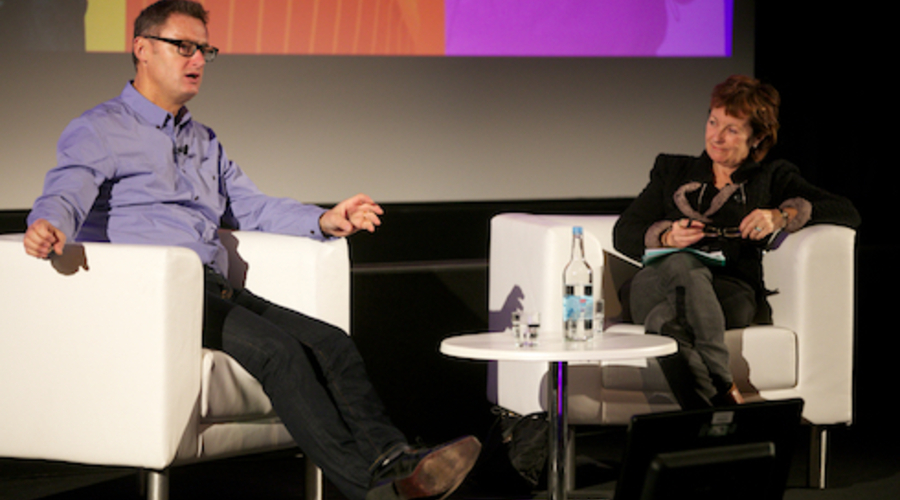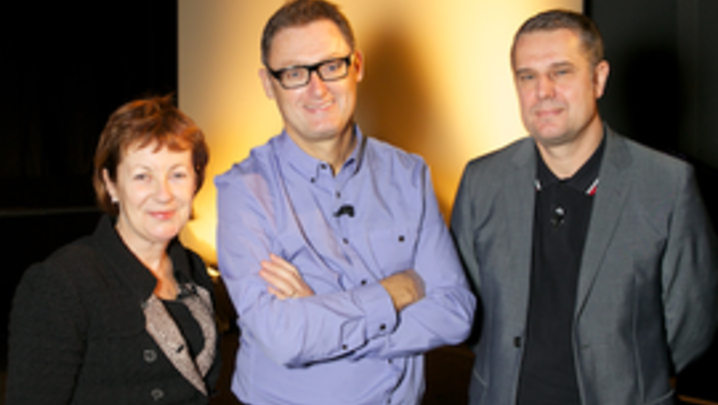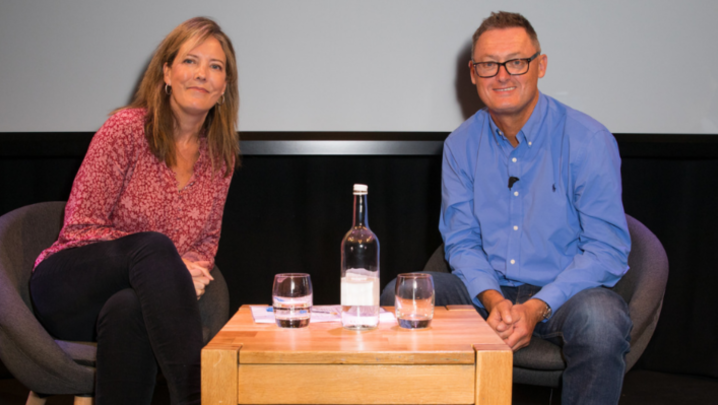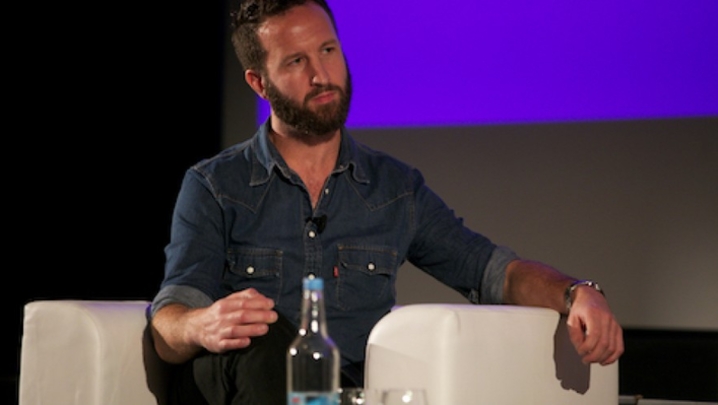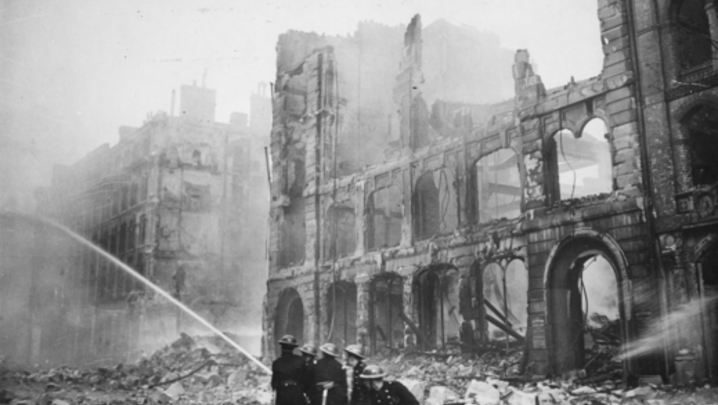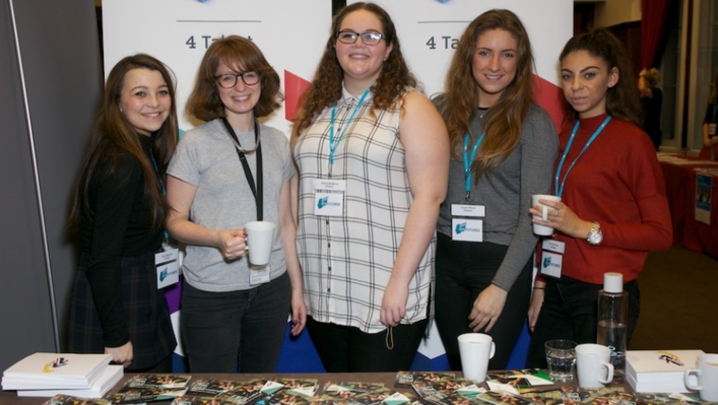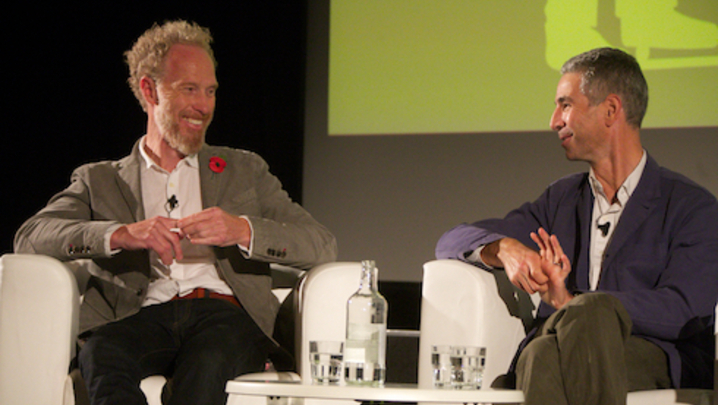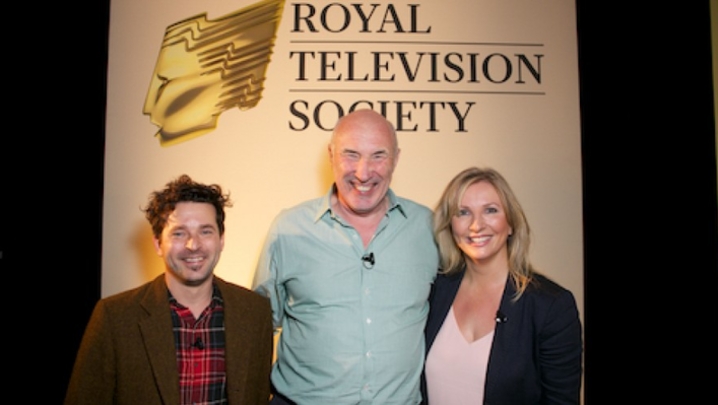Screenwriter and producer Jeff Pope told audiences about the writing process for drama productions
You could be forgiven for thinking that the award- winning screenwriter and producer, Jeff Pope, approaches his work by trying to find the most gruesome story possible.
This is the man who has made TV dramas based on the dark deeds of serial killer, Fred West, Moors murderers Ian Brady and Myra Hindley, and Britain’s most prolific hangman, Albert Pierrepoint.
But as Pope, who also scripted ITV biopic Cilla and co-wrote the BBC2 comedy, Cradle to Grave, explained to an RTS Student Masterclass “the essence of drama is conflict. If you are looking for the greatest amount of conflict it exists in these very big stories.”
“Throughout my career the theme has been stories,” he emphasised. “I trained properly to be a journalist on a local paper (the Ealing Gazette)…
“All my life I’ve been taking raw material, stories, giving them a beginning, middle and an end, and then presenting them either as a newspaper article, factual programme or a screenplay for a drama.”
He added: “It’s taking the raw material, processing it and polishing that. Before that, there is the research.”
Research is key to Pope’s modus operandi. As a newspaper reporter he would be given a story and then attempt to find out as much about the subject as possible.
“Thorough research gives you confidence…Everything needs to be built from strong foundations,” said Pope, who joined the Ealing Gazette straight from sixth form. “I didn’t go to university but I did do A levels,” he said.
He continued: “If the research is in place, the screenwriting process tends to become easier even if it’s a fictional piece.”
Pope outlined how he researched the material for Mrs Biggs, ITV’s five part drama focusing on Charmian Biggs, the first wife of great train robber, Ronnie Biggs.
Before he began work on the script he sent a producer to Melbourne, where Charmian was living. The producer spent a week with her recording their conversations.
Four or five months later Pope himself went to visit her in Australia for a fortnight and repeated the process.
“At the time my keep fit regime was rowing. As I rowed I would listen to the tapes of my interviews with Charmy,” he remembered. “I’d then read. There have been half a dozen books about the great train robbery.
“What’s interesting is that while there is a lot of crossover between books, each will probably throw up something new. This all adds to your knowledge.”
He added: “Finally you reach what I would call, for want of a better expression, critical mass. You think to yourself ‘I am on top of this now.’
“Everywhere I look in this story I know where I am going.
“There comes a point where you finally think about physically writing it or if you’re the producer handing it over to a writer.
“I’ll then start to do a skeleton. You have to think to yourself ‘what’s the ending?’ That’s a great discipline.
“In Mrs Biggs there were about four or five potential endings. You have to pick one…
“Once you have the skeleton, you go back to the beginning to start to flesh it out.”
He spent many, many hours with Charmian going over the story again and again. In doing so he developed a close rapport with her.
“The more times you go through it, the memory will spark something,” said Pope. "She’ll say something that can be used in the script and you’ve got your moment.”
He stressed that research is also invaluable when working as a producer on a factual drama. “If you are part of generating as much research about that story, you’re able to provide your writer with as many different points of stimulus, different people, different angles on the story…it’s going to make your job as a producer better.
“Your writer will have much more to draw on. It may in some instance require you to force the writer not to limit his or her horizons too soon…and force them to look at it in different ways.”
Pope, who is ITV Studios Head of Factual Drama, stressed that generally he works on more than one project at a time.
He told the students that for any budding writer or producer, the ability to generate ideas is essential. It is always important to have “a family of ideas,” he advised.
When the inevitable happens and your best idea is rejected there are others to fall back on.
“Rejection can be devastating, it’s happened to me,” said Pope. “For producers, writers and directors ideas are king… Have a good two, three, four ideas that excite you. That is the core to getting started.”
Timing is vital too. For several years he’d thought there might be a drama in the story of Charmian Biggs. The idea, however, began to take shape when he discovered the 50th anniversary of the great train robbery was imminent.
“There’s a lot of thinking time…” said Pope. “If I think about an idea today, even if I went as quickly as I possibly could it wouldn’t be on screen for a year and a half."
He began his career in TV in 1983 working as a researcher for a quirky ITV early evening news magazine show, The Six O’Clock Show, produced by London Weekend Television.
He explained it was “a London version of The One Show,” an hour-long programme comprising several short items depicting life's funny side.
“I’d work on one or two of those a week,” recalled Pope. He then became a producer on The Six O’Clock Show, subsequently working for a crime series that needed some extra imaginative flair.
“At the end of this programme there was a 15-minute segment telling the story with dramatised reconstructions of how a major crime was solved.
“That was my first dip into drama. I found I had an aptitude for writing.”
“Jeff’s a natural,” said a former boss. “From the beginning he was a very fluent writer.”
Part of the technique he has evolved over the years is thinking of how viewers may relate to a key character in a story.
He outlined the way the award-winning Appropriate Adult, the story of serial killer Fred West, was conceived. “The best stories are when you can put yourself in it…That’s become a bit of a theme of my work.
“There were a number of ways into the Fred West story, perhaps the macabre Hollywood version…where you can try and place yourself on the shoulders of Fred and Rose West…
“But personally I don’t think there is a lot to be learnt from that. I don’t think most people want to get inside the heads of serial killers.
“Therefore the approach I took was Janet Leach, the social worker assigned to Fred West while he was being interviewed by police.”
Pope added: “That allows the audience to be in the room with Fred West – the social worker could be someone you know…You think ‘What would I do in that situation?’”
The same conceit was deployed for Mrs Biggs. “Like Janet Leach, it works from the point of view of that could be me,” he said.
“I am not a great train robber but I could be in a position where my partner comes in and says ‘I’ve done something terrible.’ Then what do you do? Do you report the father of your children to the police? That dilemma was the starting point.”
Casting is never easy for a high-profile TV drama. When you're looking for someone to play a real person the stakes are higher still.
“In casting you’re always looking for the best actor for the job and not a lookalike. Having a physical resemblance does come into it somewhere,” explained Pope.
For Cilla, the actor, Aneurin Barnard, who plays Cilla Black’s boyfriend/husband, Bobby Willis, has jet black hair, whereas Willis’s was blond, Pope recounted.
“Nobody blinked at eye when he was on screen as Bobby because make-up is a brilliant thing. Always it is performance,” he said.
For the part of Charmian Biggs Pope and his team met a couple of dozen actresses before Sheridan Smith read for the part.
He takes up the story: “There are certain actors and actresses you can’t get to read because of their status. Everyone read for Charmian. The last person we met by pure chance was Sheridan. She just did the most astonishing audition.
“I still remember it vividly right to this day. She’d just done Legally Blonde, a massive West End hit.
“I expected her to be eyes and teeth and big. Television and film is small. You want small things. But she’s a brilliant actress. She brought such incredible power to just the audition.”
For Appropriate Adult Emily Watson was given the part of Janet Leach without having to read; she is Oscar nominated.
Dominic West, who played Fred West, did read for the role. He got it because of his powerful performance.
“Dominic is about 6ft two and slim, Fred is 5ft five and burly. They both had dark curly hair but even then we had to have a wig for Dominic,” said Pope.
“You’re thinking of the best in terms of interpretation. That should always be the guiding principle.”
The RTS Student Masterclasses were held at the BFI on London’s South Bank, November 10. The producer was Helen Scott. Jeff Pope was interviewed by Carolyn Reynolds, who now works as media consultant.

